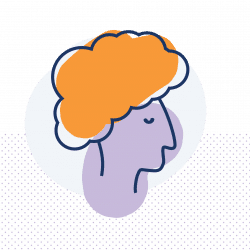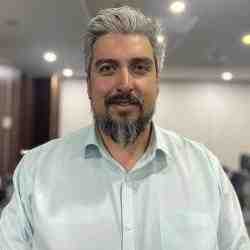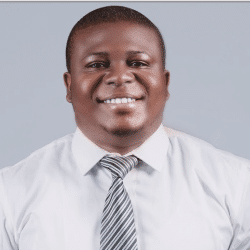Introduction
Makoto Watanabe is taking advantage of the rise of online social media to create an “Everyone an Investigative Journalist” social movement in Japan.
The New Idea
Reading news online is becoming a new standard especially among young people (a survey by Nippon Foundation in 2019 shows 47.3% of Japanese 18-year-olds uses social media as an information source) and newspaper sales is dropping from over 50 million in 2009 to 35 million in 2020.
Makoto is accelerating a growing demand from civil society for transparency and accountability on the part of government and business leaders by keeping this issue before the public. At the same time, he uses the success of these efforts to recruit a new generation of young people to embrace investigative journalism not just as a profession but as a calling that ordinary citizens need to embrace as part of their civic responsibility.
The success of his work has brought a widening receptivity, especially in the evolving field of social media. This has encouraged others to launch a growing number of citizen initiatives that unmask the ways in which entrenched interests defend and exploit their power to erode democracy. In Makoto’s view, it is also as much about educating a new generation of investigative journalists from an early age.
The Problem
Japan’s democracy is in trouble. The core values of democracy, transparency, and accountability are declining rapidly in Japan, evident in the media in particular. According to the Press Freedom Index published by Reporters Without Borders, Japan’s ranking dropped from 11th place in 2010 to 67th place in 2021, among 180 countries. The cozy relationship between authorities and media is not new. During WWII, major media organizations kept reporting false victory of the Japanese army in order to keep up hope among citizens until the day the Emperor declared the country’s defeat. For the majority of people, the defeat was a surprise.
Much hasn’t changed. For example, the “Kisha Club” (Reporters’ Club) is a membership club for media companies whose origin goes back to the 19th century. It remains highly restricted, usually excluding freelancers and foreign media, and only its members are allowed to access certain resource materials such as judgement papers from trials or attend press conferences. This exclusivity could lead to the emergence of a hotbed of collusive connection between the Kisha Club members and government authorities.
Another equally adverse structure is the absence of lateral connection. There is no union for reporters and journalists in Japan unlike some other developed countries. A reporter is more likely to identify him/herself as a “salaried employee of a media company X” rather than as a journalist whose mission is to report the truth. If a reporter is attacked by an external entity because of the news he/she reported on, their employer will protect them, but fellow reporters are not likely to do so. Another related structural flaw that impedes transparency is the cross-media ownership: each of the top five newspapers that have readership of more than 25 million in total is liaised tightly with TV broadcasting companies as a “family” and tend to keep the same perspectives.
In 2014, despite strong public opposition, the long-time ruling party, the LDP, passed the controversial Act on the Protection of Specially Designated Secrets (SDS). The law allows the government to designate sensitive information as “special secrets” that are then protected from public disclosure. In 2017 the LDP also passed the Conspiracy Law which weakens civil liberties and could be abused to monitor and target innocent citizens. And in 2020, Prime Minister Suga rejected the nomination of six scholars, who were critical of SDS and other security laws, to join the Science Council of Japan (SCJ) as new members. SCJ is a representative organization of Japanese scholars and scientists in all fields of sciences whose function includes policy recommendations to the government, similar to the National Academy of Sciences in the USA. SCJ was originally launched in 1949 as an independent scientific body under the jurisdiction of the Prime Minister, in part because during WWII, scientists were not independent and had to support the government's war efforts. The rejection of the membership of the six scholars by the Prime Minister was an unprecedented act that went against the original raison d’etre of the organization.
At this transition phase to online media as a main source of information, the LDP is tightening up its grip on traditional media. In 2014, the LDP sent a warning letter to TV networks in Tokyo demanding that they “ensure fairness, neutrality and correctness” in their coverage. By these words, LDP meant “not to criticize the government” with an implication that the Minister of Internal Affairs has the power to suspend the license to operate. None of the newspapers or TV news initially publicized this behavior, which could be interpreted as a threat, but after a small online media scooped this incident, mass media followed. This is one of the first examples where a small online media organization was able to influence larger media networks. A similar threat by LDP occurred in 2016, when the then-Minister of Internal Affairs explicitly said that she could suspend TV broadcasting companies’ licenses if the news channel repeatedly fails to be “politically fair.” There are also some alarming signs that are easily observed in average citizens’ daily life; five popular golden-hour television news-show anchors were let go between 2014 and 2020 because of the comments they made that had nuanced connotation of criticism on the current regime.
Social media can be significant not only as the platform to receive news but also as the means to participate. When the government was ready to revise the immigration law in 2021, in order to make the process of deporting asylum seekers less complicated, there was huge opposition among the public on social media, resulting in the proposal being taken down at the end.
The Strategy
Makoto is building demand for transparency and accountability with a strong civil society. His work focuses on three main areas. First, Makoto is distributing a growing stream of stories in Japanese and English featuring Japan-related investigative journalism through a new generation of local, regional, and global media working in online and print media. He uses the growing understanding of the need to pursue higher international standards for accountability and transparency to recruit a wider network of journalists who wish to be part of the movement. Recently his initiative has broadened to include schools and universities.
Tansa has had media outlets both active in print and online as partners. For example, the Toyo-keizai business magazine, to whom Tansa provided articles on collusive relations between pharmaceutical companies and medical doctors, and also government committees, averages five million page views per day and eight million at its peak, targeting businesspersons in their 30s to 50s. Tansa currently works closely with two other journals.
With only a small core team, Tansa has published 16 series of articles in the past several years, unmasking the wrongdoings of the government and large corporations. One series focused on the compulsory sterilization performed under the “Eugenic Protection Law” between 1948 and 1996. More than 16,500 people with intellectual or mental disability were forced to have sterilization surgeries ordered by the Ministry of Health. As a result, the Diet passed a law to pay compensation to the victims in 2019, and Prime Minister Abe made a public acknowledgement and apology for the series of acts that damaged human rights.
Focusing on Japan’s conduct at the international level, Tansa published articles about Japanese companies, along with a South Korean electric power company, building coal-fired power plants in a fishing village in Indonesia emitting 20-30 times the air polluting elements compared to Japanese power plants. The investigation was made possible through collaborations with Korean News Tapa and Indonesian Tempo. As a result, the issue was raised in the Korean parliament and the Korean company decided to withdraw from the business.
Another example is a series of articles on Philip Morris marketing IQOS, its new heated tobacco product, as a better option to smokers who stayed home during the COVID-19 pandemic, even though the WHO and Tokyo Medical Association warned of its potential harmful effects. Tansa investigated in collaboration with newsrooms in 10 countries and the Organized Crime and Corruption Reporting Project (OCCRP). In June 2020, Japan’s Consumer Affairs Agency ordered Philip Morris Japan to pay $5 million for their misleading newspaper advertisement, a record high penalty for such violations.
In addition to publishing groundbreaking investigative pieces, Makoto is encouraging and guiding ordinary citizens to embrace investigative mind and skills and create demand for this kind of information. Through his 16-year experience of trying to improve society by exposing the facts, he learned that “exposing truth” would create a buzz for a while but that it wouldn’t change the deep-rooted systems in the society. Thus, the same patterns would repeat. Instead, he came to believe that what is missing is a community that upholds democracy. There are only a few who practice investigative journalism in Japan, yet when they do it, they don’t collaborate at all. As Makoto believes the community has to be open and flexible, he began recruiting people who share the same vision to take responsibility together, not just a few people around him, but the larger group of people who want to support the field such as other newsrooms, citizen sector organizations, and universities. In order to create a community, he started Tansa school in 2020 and educational program at free schools (alternative schools) in 2021.
Tansa school was conceived on a belief that investigative skill is a “public good” that every citizen needs to have to support democracy. The course offers online and in-person hybrid classes consisting of 10 lectures and workshop sessions to discuss investigative mindset, concrete skills to find facts, and how to use open data. The aim is to equip citizens with tools necessary to obtain and share factual information. The pilot session, held in 2020 – 2021, was attended by 43 participants and he is planning to expand this program in 2022. He believes Tansa school will become a platform to give birth to citizen journalists, forming a strong community in future.
Makoto also started working with young people by developing a special educational program for “free school” students collaboratively with a principal of a free school in Hiroshima. There are approximately 480 free schools (alternative schools) with 7,000 students in Japan in 2019. The free school students are often more curious and eager to express their opinions compared to their peers in traditional schools. At the same time, many of them are also the victims of bullying and ostracism, and the schools recruit teachers who tend to score high in empathy. In this program just getting underway, each child, based on the agenda he/she chooses, learns how to (1) set up a hypothesis, (2) decide to whom he/she wants to convey the end result ideas, (3) research, (4) express the final result in the form each chooses: verbal, visual or by written words. The next step is to publish the final model and to disseminate the model to other free schools and then to private schools in Japan.
The Person
Makoto’s first experience of the power of journalism took place when he was 13 years old. He witnessed one of his classmates with physical and intellectual disability being bullied by other classmates. Makoto was physically big for his age and could have beaten up the bullies. But instead, he wrote an essay in the class diary about how bullying a classmate is wrong. Everyone in the class read it and understood that Makoto was the author. After that the bullying stopped.
Towards the end of his high school life, Makoto’s family fell into a serious financial crisis and could not afford to send him to a cram school to prepare him for college entrance examination. He took advantage of a “newspaper delivery boy (paperboy) system” that provides room and board and modest wage to cover the cost of cram school tuition to needy youth in exchange with early morning and late afternoon newspaper delivery to homes and offices. In the dorm, Makoto had his first exposure to the dark reality of Japan; one coworker was escaping from debt collectors and the other was ex-yakuza trying to survive.
After graduating from Waseda University, one of the top universities in Tokyo, Makoto first worked at a national TV company and then joined Asahi Newspaper, and later joined its newly established cutting-edge unit at Asahi dedicated to investigative journalism. In 2014 the paper was under attack by right-wingers and rival media organizations for two controversial reports, one on the Fukushima #1 nuclear plant explosion in March 2011, and another on the issue of WWII “Korean comfort women”. Asahi admitted that a part of the article on comfort women was written based on a testimony that was later found out to be false and was severely criticized for hurting Japan’s reputation internationally. The paper was also blamed for the wording they used in the report on the nuclear plant explosion that implied TEPCO (Tokyo Electric Power Company) workers “fled” the site selfishly although they were ordered to stay despite leakage caused by tsunami. Crumbling under the pressure, Asahi’s president held a press conference and formally apologized for the paper’s coverage.
In 2015 Makoto was part of an investigative team at Asahi that investigated the collusive relationship between 72 pharmaceutical companies and medical doctors, and also the government committees. As the investigative process advanced, Asahi started getting hints from doctors threatening possible lawsuits and from pharmaceutical companies for cancelling ad contracts with the paper. The President of Asahi, under pressure, decided to close the investigation. This is when Makoto realized that it was not possible to perform a mission as a watchdog within traditional media and that Japanese society itself lacked a foundation to uphold transparency and accountability. He concluded that a community with a new mindset needed to be built.
Makoto resigned from Asahi and co-founded Waseda Chronicle, an independent online media in 2017. It was renamed as Tokyo Investigative Newsroom Tansa (“investigation” in Japanese) in 2021. One of the first tasks he accomplished after its launch was building the 2016 database on the money paid to doctors by pharmaceutical companies, which is now available online to everyone free of charge. It was accessed 2.3 million times in the first two months. In the following year the database and the series of articles led to the announcement by the Association of Japan Medical Colleges to discourage doctors from receiving substantial amount of money from pharmaceutical companies, usually offered as fees for “lectures” or “consultations,” and to have such transactions be closely monitored. The database will be updated every year.



